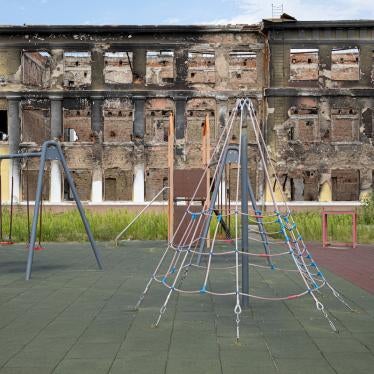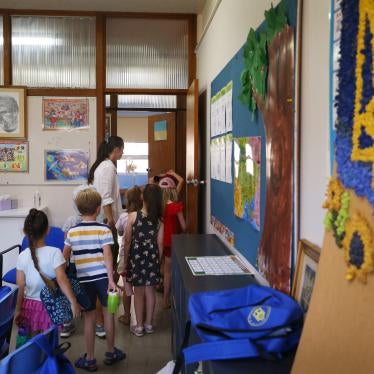Two years ago, the United Nations Security Council adopted a groundbreaking resolution to safeguard education during wartime. The resolution called on governments to both prevent and address attacks on schools and other educational facilities, including through their national laws. Still, millions of children in conflict zones are under threat of attack and denied an education.
The current hostilities between Israel and Palestinian armed groups are a reminder that authorities should translate expressions of support into action to better protect students, teachers, and educational facilities.
The Global Coalition to Protect Education from Attack (GCPEA) alarmingly showed a 17 percent increase in attacks on students, teachers, and schools in 2022, totaling over 3,000 incidents. These attacks killed people, left others with long-term injuries and psychosocial effects, and damaged school buildings, preventing many students from returning to their studies.
Non-state armed groups are frequently responsible for these attacks, GCPEA’s analysis found. For example, Human Rights Watch has documented attacks by armed separatists on schools in Cameroon’s North-West and South-West regions since March 2017. Fighters have burned schools, attacked universities, kidnapped students and teachers, and threatened and attacked students. In Burkina Faso, armed groups have coerced parents into keeping their children away from schools and committed violence against teachers. Yet state armed forces have also inflicted damage on educational facilities in ongoing conflicts, including in the Gaza Strip and Ukraine.
This reality underscores the importance of UN Security Council action. Security Council statements urging states to implement the resolution and imposing targeted sanctions are essential to promoting compliance with the resolution. Armed forces and armed groups should cease all attacks on students, teachers, and schools, and refrain from using schools and universities for military purposes. Furthermore, the Security Council should monitor governments' progress in enshrining protections for education in national laws, investigating attacks, and prosecuting those responsible. This information should be included in the UN secretary-general’s reporting to the council on children and armed conflict.
Governments can further demonstrate their commitment by endorsing and implementing the Safe Schools Declaration, now endorsed by 118 states. Endorsement, however, is only the first step. Governments should develop action plans to prevent and halt attacks, and design policies and legislation to protect students, teachers, and schools. Armed forces, armed groups, and UN and regional peacekeepers should implement comprehensive training programs on deterring military use of schools.
Implementing the Security Council resolution is crucial for safeguarding education in wartime.








